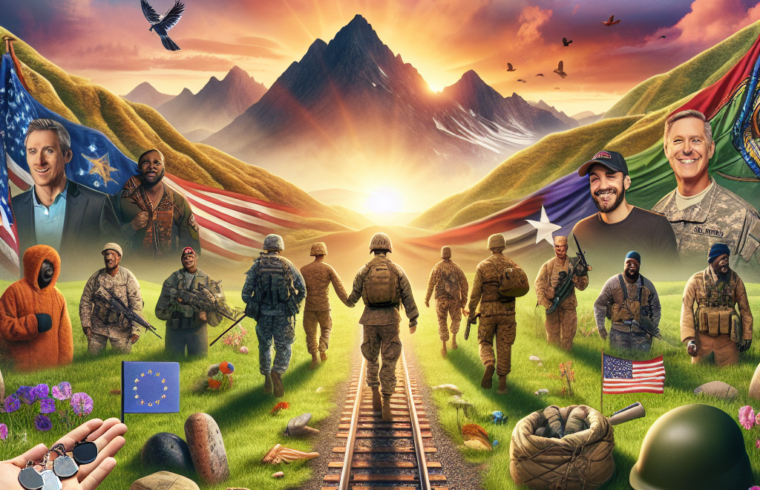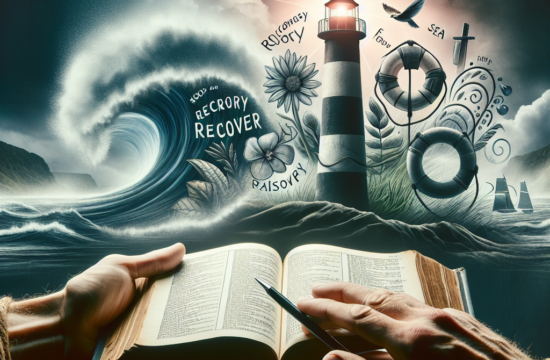==> Thank you for reading this post! Click Here If you are looking for support and Victory over PTSD.
Understanding PTSD in Combat Veterans
What is PTSD?
So, let’s start with the basics. Post-Traumatic Stress Disorder (PTSD) is a mental health condition triggered by a terrifying event, either experiencing it or witnessing it. For combat veterans, this could mean living through harrowing moments that challenge their very sense of safety and stability. It’s like having an emotional hangover that never seems to fade.
PTSD can manifest in various ways—intrusive memories, nightmares, severe anxiety, and uncontrollable thoughts about the traumatic events. Imagine trying to go on with life when memories of trauma come barreling back at the least expected moments. It’s tough, and for many veterans, it feels insurmountable.
Many folks don’t realize that PTSD doesn’t discriminate—it can affect anyone, but the nature of combat and the experiences involved make it particularly challenging for veterans. It’s crucial to understand PTSD so we can create support systems that genuinely resonate with those who’ve served.
Modern Approaches to Treatment
Therapy Innovations
Let’s talk treatment because there’s a wealth of hope out there! Traditional talk therapy might sound like a snooze-fest, but it’s evolving. Veterans today benefit from innovative therapies that combine technology and psychology. For instance, EMDR (Eye Movement Desensitization and Reprocessing) has been a game-changer, helping individuals process trauma effectively.
I’ve seen how virtual reality is being used in some hospitals. Veterans can relive encounters in a controlled environment and confront fears with supportive professionals beside them. It’s not magic, but it’s close! The aim is to desensitize those emotional triggers through carefully structured experiences.
More than just the therapies, connecting with others is key. Group therapies and support networks bring veterans together to share stories. It creates a sense of camaraderie, and suddenly, no one feels alone in their battle. That community aspect can lead to miraculous shifts in perspective.
The Role of Family and Community Support
Family’s Importance
Who stands beside our veterans when the going gets tough? Family. They’re often the unsung heroes in this journey. Family support can provide veterans with a safety net, fostering an understanding environment to navigate the intricacies of PTSD recovery. Sometimes just being there, really being there, can make all the difference.
I’ve witnessed families struggling to understand what their veteran loved one is going through. It’s not easy, but communication can fill those gaps. Family counseling or support groups tailored for families of veterans provide the insights and tools needed to approach tough conversations.
Also, small gestures matter—like shared dinners or family game nights. These moments of normalcy, when everyone laughs and connects, are crucial for healing. It reinforces a soldier’s sense of belonging at home, which is vital after the chaos of combat.
Veteran-Led Initiatives and Forums
Peer Support Programs
Ever hear of veteran-led initiatives? Man, these programs are genuinely heartwarming. They create spaces where veterans can share experiences and empower one another. When a fellow soldier shares their journey, it fosters trust and understanding that outsiders might miss. The vibe is relatable, and the outcomes are profound!
Get Support and Help with Recovery! Visit us for more Information and Support
Joining a peer support group is often a first step for many veterans. They find strength in numbers as they tackle their challenges together. My buddy, a veteran, shared how valuable it was just to be in a room where everyone “gets it.” Sometimes, it’s easier to open up to someone who’s walked in your shoes.
Moreover, these initiatives also encourage veterans to become advocates for change. By sharing their recovery stories publicly, they highlight the importance of mental health awareness and erase stigmas associated with seeking help. It creates ripples of change and spreads hope beyond just their immediate circle.
Innovative Therapies and Holistic Approaches
Embracing Alternative Treatments
Let’s dive into alternative treatments. We’re talking yoga, meditation, and even equine therapy! These programs focus on the mind-body connection, which is often overlooked in traditional approaches. I can’t stress enough how much veterans benefit from activities that encourage mindfulness and self-awareness.
Equine therapy, for instance, has been a surprising favorite. Horses can sense the emotions of those around them, providing non-judgmental support. Working with these majestic creatures helps in building confidence and fostering a sense of calm—plus, who doesn’t love a good cuddle with a horse?
These holistic approaches remind veterans that recovery isn’t always about intense therapy sessions. Sometimes, simply finding joy in activities can promote healing. Trying new things breaks the routine, challenges perspectives, and opens doors to new friendships. It’s all about nurturing the spirit as much as the mind.
FAQ
1. What is PTSD and how does it affect combat veterans?
PTSD is a mental health condition triggered by traumatic experiences, often affecting combat veterans by bringing back distressing memories, nightmares, and anxiety. It affects how they function daily and how they relate to others.
2. What are some modern treatments for PTSD?
Modern treatment approaches include innovative therapies like EMDR, virtual reality exposure therapy, and increased focus on community support systems combining various therapeutic techniques.
3. How can family support aid in a veteran’s recovery?
Family plays a crucial role in providing emotional stability and understanding. Open communication and activities that foster connection can significantly impact a veteran’s healing journey.
4. What veteran-led initiatives are available for support?
Organizations that create peer support programs allow veterans to share experiences, foster connections, and advocate for mental health awareness, making it easier for others to access help.
5. Are there alternative treatments that veterans can explore?
Yes! Alternative treatments like yoga, meditation, and equine therapy have shown to promote healing, focusing on the connection between the mind and body without the pressure of traditional therapy sessions.













